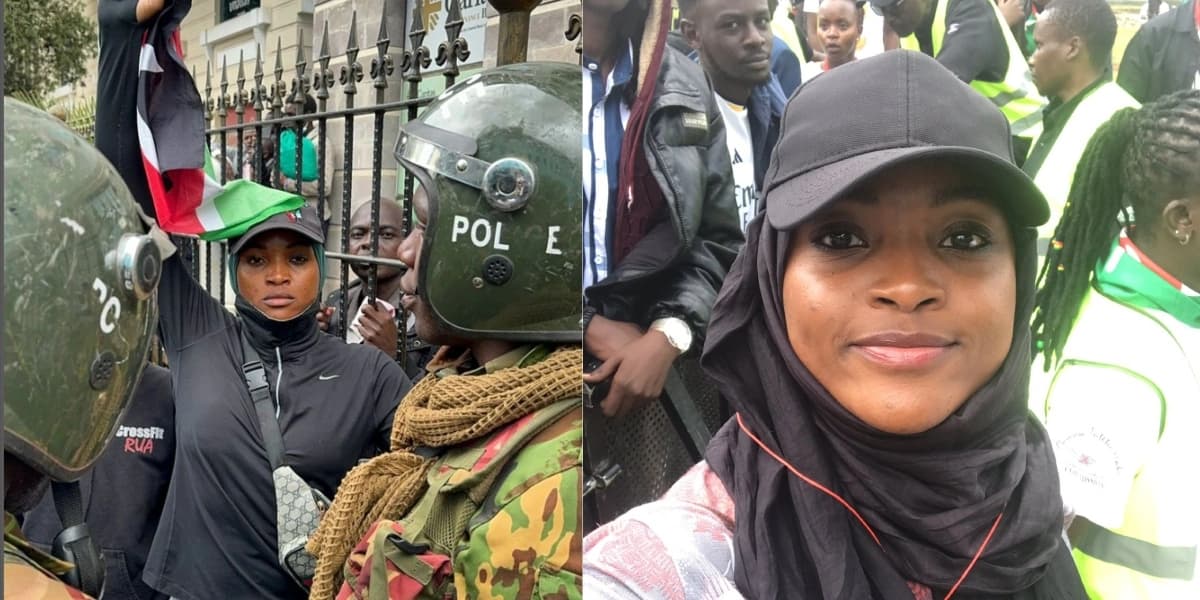We're loading the full news article for you. This includes the article content, images, author information, and related articles.
Kenyan women are leading, organizing, and shaping the nation’s protest and justice movement. From the streets to the digital stage, their stories, grief, and vision are redefining resistance and democracy in Kenya.

“Hatuogopi”: Kenyan Women at the Heart of the Protest and Justice Movement
Byline: Nairobi, Kenya –
In the smoky haze of the protests that have swept across Kenya’s cities, a powerful chant rises above the chaos: “Hatuogopi!” — We are not afraid. Amid the frontline defiance and behind-the-scenes organizing, women have emerged as a backbone of the justice movement, wielding placards, poetry, first aid kits, smartphones, and bold resolve. Their voices—too often sidelined in Kenya’s political discourse—are now central to a new kind of revolution.
From Nairobi’s CBD to Kisumu’s Kondele, women have not only joined the protests—they’ve led them. University students, street vendors, clergy, nurses, and unemployed youth have marched shoulder-to-shoulder, demanding justice for police killings, joblessness, and economic injustice.
“I was protesting because I’m tired of living on the edge,” said Miriam, a 25-year-old single mother and hawker. “The price of unga doesn’t wait for your excuses. This system is killing us slowly.”
During the July 2024 demonstrations, women bore the brunt of crackdowns, but they also organized resistance. Groups like Feminists in Kenya, Missing Voices, and Warembo Ni Hao helped document abuses, coordinate safe houses, and ensure that women protestors had access to menstrual products, water, and legal support.
In a widely circulated clip, a young woman facing down riot police with a raised fist shouted: “I’m here for my daughter’s future. You cannot silence me with fear.” Her voice became a rallying cry.
For many women, this is also a fight for memory — for justice denied. Mothers of slain youth, like the families of Brian Malika and Lillian Njeri, have become unlikely public figures, forced into activism by grief. Their testimonies at vigils and social justice forums have reframed the protest narrative—not just as a demand for reform, but as a reckoning with loss.
“These mothers are not just mourning,” said human rights advocate Beatrice Wafula. “They are truth-tellers. Their pain fuels our collective urgency.”
Mothers have stood outside mortuaries and courts, holding photographs of their children, demanding autopsies, transparency, and accountability. Their grief is not private—it is political.
Kenyan women are also turning to art, spoken word, photography, and social media as tools for resistance and healing. TikTok and Instagram have become stages for unfiltered storytelling: women sharing protest footage, dissecting laws, and using humor and poetry to expose injustice.
Notable voices like Patricia Kihoro, Muthoni Drummer Queen, and Adelle Onyango have used their platforms to amplify protest messages and center women’s stories, calling out both state violence and patriarchal exclusion.
Street murals and gallery exhibitions now feature images of women protestors alongside slogans like “Mama ni Activist”and “We Bleed, We Fight, We Lead.”
While many mainstream portrayals focus on women as vulnerable, the reality is more layered. Women have not only shielded others from violence — they’ve envisioned alternatives. Community organizers in Mathare and Mukuru have proposed localized safety networks, crowd-sourced medical supply drives, and digital archives of state abuse.
Others, like legal advocate Ruth Ambogo and activist Wanjeri Nderu, have pushed for gender-sensitive justice frameworks, arguing that the struggle for democracy must also dismantle patriarchal systems that silence women’s leadership and economic participation.
“We don’t want to be called heroes after we’re gone,” said one protestor. “We want to live in a country that sees us, hears us, and protects us while we fight for it.”
The Kenyan justice movement is not just about rejecting oppression — it’s about imagining something better. And in that imagining, women are building blueprints for collective healing, equity, and representation.
Whether in the roar of the streets or the quiet work of care, Kenyan women are showing that protest is not just an act of resistance — it is an act of love. Love for their children, their communities, and a nation they refuse to give up on.
They are not just present in this movement. They are this movement.
Keep the conversation in one place—threads here stay linked to the story and in the forums.
Sign in to start a discussion
Start a conversation about this story and keep it linked here.
Other hot threads
E-sports and Gaming Community in Kenya
Active 9 months ago
The Role of Technology in Modern Agriculture (AgriTech)
Active 9 months ago
Popular Recreational Activities Across Counties
Active 9 months ago
Investing in Youth Sports Development Programs
Active 9 months ago